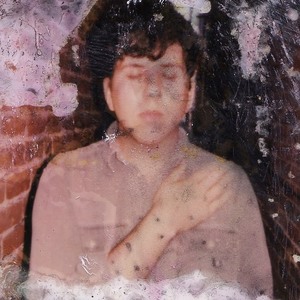No animals were hurt during the creation of Eric Slick’s new Bullfighter EP—but, as he describes, there was certainly some emotional wrestling. Slick is best known as the drummer of beloved Philadelphia psych-folk outfit Dr. Dog, but he’s always been a man unwilling to be defined by one thing alone. Slick has long been a part of punk band Lithuania; more recently he’s been on tour with subtly funky singer (and his fiancé) Natalie Prass; and his 2017 solo album Palisades was a dreamy, psych-rock success.
Slick’s latest release, a stark and jarring four-song, string quartet-anchored EP, won’t do much to pin him down either. Bullfighter is an evolution for Slick, not merely as a musician, but as a human. What began as a collection of compositions about his family’s Jewish history evolved to incorporate the story of America’s first matador in Spain: Sidney Franklin, a Jewish New Yorker who became a celebrated bullfighter in the 1920’s and 30’s, befriending Ernest Hemingway along the way.
But as Slick dug deeper into Franklin’s story, he found parallels to his own—a distancing from Jewish culture, a creative reinvention—and Bullfighter was born. We caught up with Slick to talk music, bullfighting and why Chanukah is better than Christmas.
Your mother is Jewish, and your father comes from a Christian background—and I understand as a kid you celebrated both Christmas and Chanukah. Which wins out, in your mind?
Chanukah is better than Christmas. It’s beautiful: the lighting ceremony with the menorah, the Hebrew chanting. I love Chanukah because it’s succinct. There’s nothing left to question: you get, at the most, eight gifts, and they’re usually practical. With Christmas, you’re always asking how many presents to get everyone. Plus, Chanukah is an excuse for me to make potato latkes, which are delicious. I make them vegetarian so I don’t use any rendered fat; I substitute with Earth Balance.
You’ve described this project as your method of coming to terms with your family’s Jewish identity. Can you tell me about how that process began for you?
At a time when most of my Jewish friends were having Bar Mitzvahs, my parents were veering towards agnosticism. I was envious; I thought the rite of passage was beautiful, but my family were liberal hippies and even a Bar Mitzvah seemed too structured. And yet I still felt really connected—every time I was at a Bar Mitzvah I knew I was with my people. At the same time, I was deeply involved with after school music programs, and reading from the Torah when I spent all my time learning music… music won.
By my teenage years, we didn’t have a set religion in the house. So during my 20s, I went on my own spiritual path, discovering this new spiritual identity through daily meditation. When you meditate, you’re uncovering a lot of different stones inside you. Every day I find something about my past life that I wasn’t aware of, especially regarding my connection to Jewish culture and that part of my family. So a lot of this record was wrestling with my own origin.
How far back did you reach?
I mean, the musical side of my family is the Jewish side. My grandfather’s name was Joseph Steinberg, a jazz musician who played with Buddy Rich, Billie Holiday. That’s my musical DNA. But he was Joe Stone, not Joe Steinberg. He endured a post-WWII America where he had to sound like a gentile to get more work. He was a deeply troubled person, addicted to drugs like so many jazz musicians in his era.
Like me, he felt distance from his identity—and I think that’s become a trope in our culture in America. So I started writing this group of songs about that fight, referencing specific things that happened in my family. And I felt the songs getting very personal. It’s art; it can’t be a diary entry.



No Comments comments associated with this post